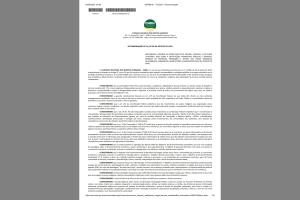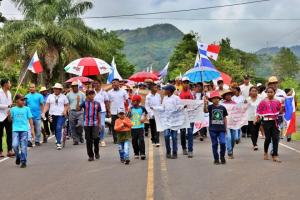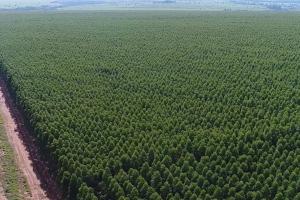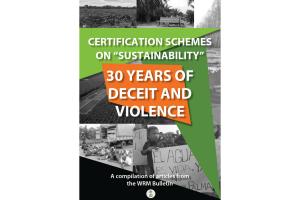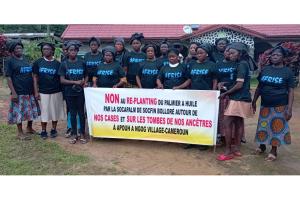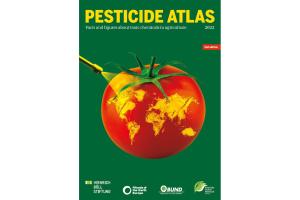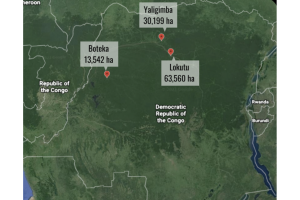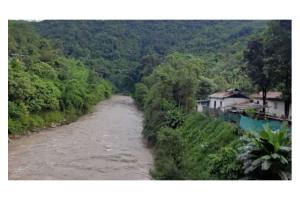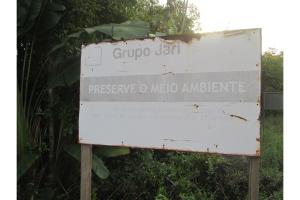On August 8, 2023, the National Human Rights Council (CNDH) sent a recommendation to federal and state authorities regarding measures to protect, promote and defend indigenous peoples and quilombola, riverine, peasant and agro-extractivist populations in Pará state.
Large-Scale Tree Plantations
Industrial tree plantations are large-scale, intensively managed, even-aged monocultures, involving vast areas of fertile land under the control of plantation companies. Management of plantations involves the use of huge amounts of water as well as agrochemicals—which harm humans, and plants and animals in the plantations and surrounding areas.
Articles
24 February 2024
Bulletin articles
19 December 2023
Almost 30 years of UN climate negotiations have resulted in the establishment of policies and practices that facilitate the constant expansion of the fossil fuel-based economy (and its profits) while hiding its implacable negative impacts for the territories where it expands.
Bulletin articles
19 December 2023
In the past two years, tree plantation initiatives aimed at generating carbon credits have doubled. Whether as large monocultures or as nicely sounding projects with grassroots communities, tree plantations for carbon offsetting are neither a solution to the climate chaos nor beneficial to rural communities in the Global South.
Bulletin articles
19 December 2023
A compilation of articles from the WRM Bulletin aims to expose the damaging role played by companies and organizations involved in certification schemes. After three decades, what is clear is that the only “sustainability” that they guarantee is that of corporations’ business and that of certification industry itself.
Bulletin articles
19 December 2023
The Afrise women's association launched an international petition to stop the replanting of oil palm monocultures around their homes and over the grave sites of their ancestors. They are denouncing decades of sexual abuse, land dispossession and misery. They are demanding that their territory be returned to them, so that they can lead a life of dignity.
Bulletin articles
19 December 2023
For decades, Mapuche communities have been resisting the impacts of a forestry model based on large-scale monoculture plantations. In this interveiw, Pablo Reyes Huenchumán, spokesperson for the Paillakawe community, explains how they organize, and what the main challenges are in the struggle to recover their territory and maintain their culture.
Multimedia
19 December 2023
The Afrise women's association launched an international petition to stop the replanting of oil palm monocultures around their homes and over the grave sites of their ancestors. Here we share the testimony of the president of Afrise.
Other information
19 December 2023
The material presents a broad overview of the theme, with data on use and impacts of agrotoxins on agriculture, health and the economy, among others.
Action alerts
28 November 2023
Sign this petition against the replanting of oil palm by Socapalm (Socfin/ Bolloré) in the vicinity of the homes and tombs of the neighbouring village Apouh à Ngog, in Edea-Cameroon.
Action alerts
20 November 2023
Collective statement, 20 November 2023
Bulletin articles
25 October 2023
Land related struggles in India’s Northeast states might worsen with the push to expand oil palm plantations on small-farmers and Indigenous land, threatening their food sovereignty and the ancestral practice of Jhum (shifting cultivation). On top of this, a new Forest Amendment Law will facilitate this expansion, jeopardizing further the region’s forests and Indigenous Peoples.
Bulletin articles
25 October 2023
WRM’s reply to Biofílica Ambipar’s “Clarification Note” about the article "REDD and the Green Economy exacerbate oppression and deforestation in Pará, Brazil", written by WRM and published in its Bulletin of July 2023.
